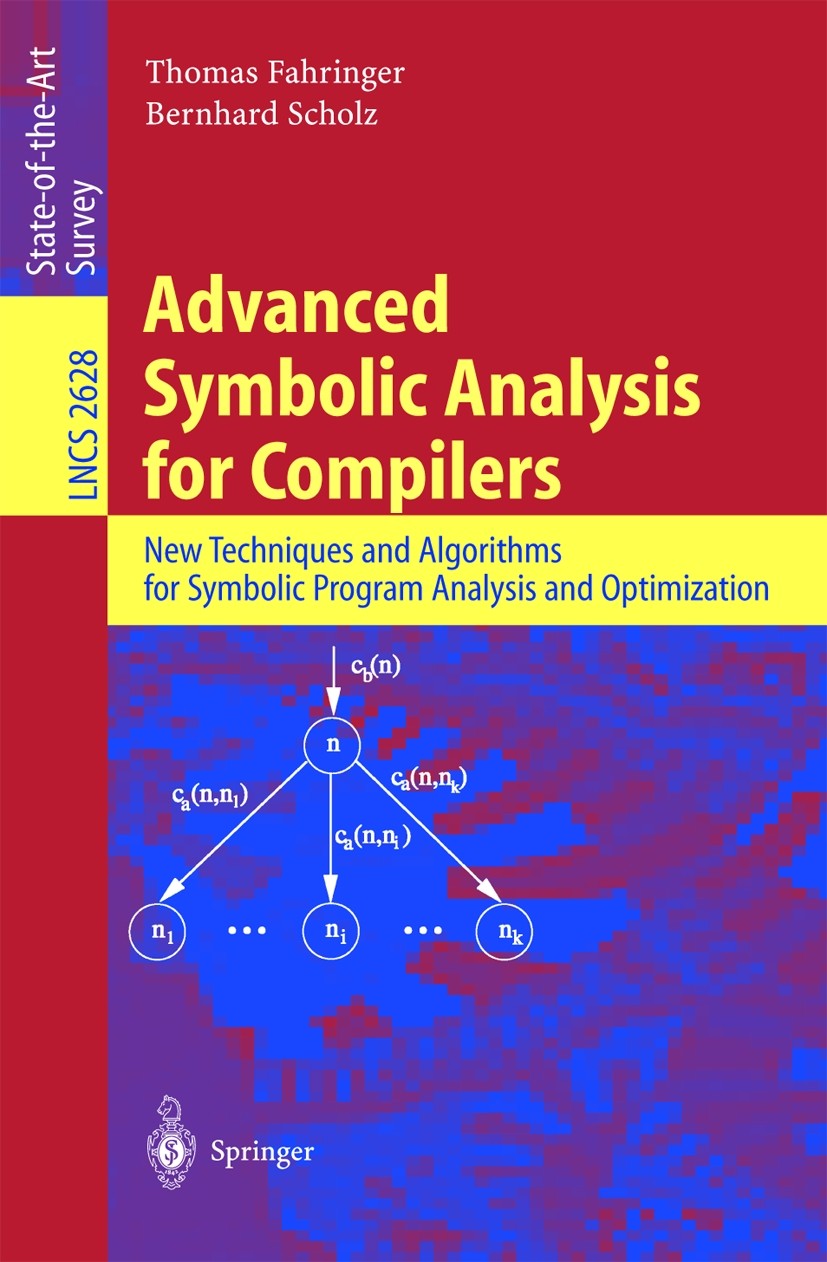| 期刊全稱 | Advanced Symbolic Analysis for Compilers | | 期刊簡稱 | New Techniques and A | | 影響因子2023 | Thomas Fahringer,Bernhard Scholz | | 視頻video | http://file.papertrans.cn/147/146257/146257.mp4 | | 發(fā)行地址 | Includes supplementary material: | | 學(xué)科分類 | Lecture Notes in Computer Science | | 圖書封面 |  | | 影響因子 | The objective of program analysis is to automatically determine the p- perties of a program. Tools of software development, such as compilers, p- formance estimators, debuggers, reverse-engineering tools, program veri?- tion/testing/proving systems, program comprehension systems, and program specializationtoolsarelargelydependentonprogramanalysis. Advancedp- gram analysis can: help to ?nd program errors; detect and tune performan- critical code regions; ensure assumed constraints on data are not violated; tailor a generic program to suit a speci?c application; reverse-engineer so- ware modules, etc. A prominent program analysis technique is symbolic a- lysis, which has attracted substantial attention for many years as it is not dependent on executing a program to examine the semantics of a program, and it can yield very elegant formulations of many analyses. Moreover, the complexity of symbolic analysis can be largely independent of the input data size of a program and of the size of the machine on which the program is being executed. In this book we present novel symbolic control and data ?ow repres- tation techniques as well as symbolic techniques and algorithms to analyze and op | | Pindex | Book 2003 |
The information of publication is updating

|
|
 |Archiver|手機版|小黑屋|
派博傳思國際
( 京公網(wǎng)安備110108008328)
GMT+8, 2025-10-27 20:05
|Archiver|手機版|小黑屋|
派博傳思國際
( 京公網(wǎng)安備110108008328)
GMT+8, 2025-10-27 20:05


